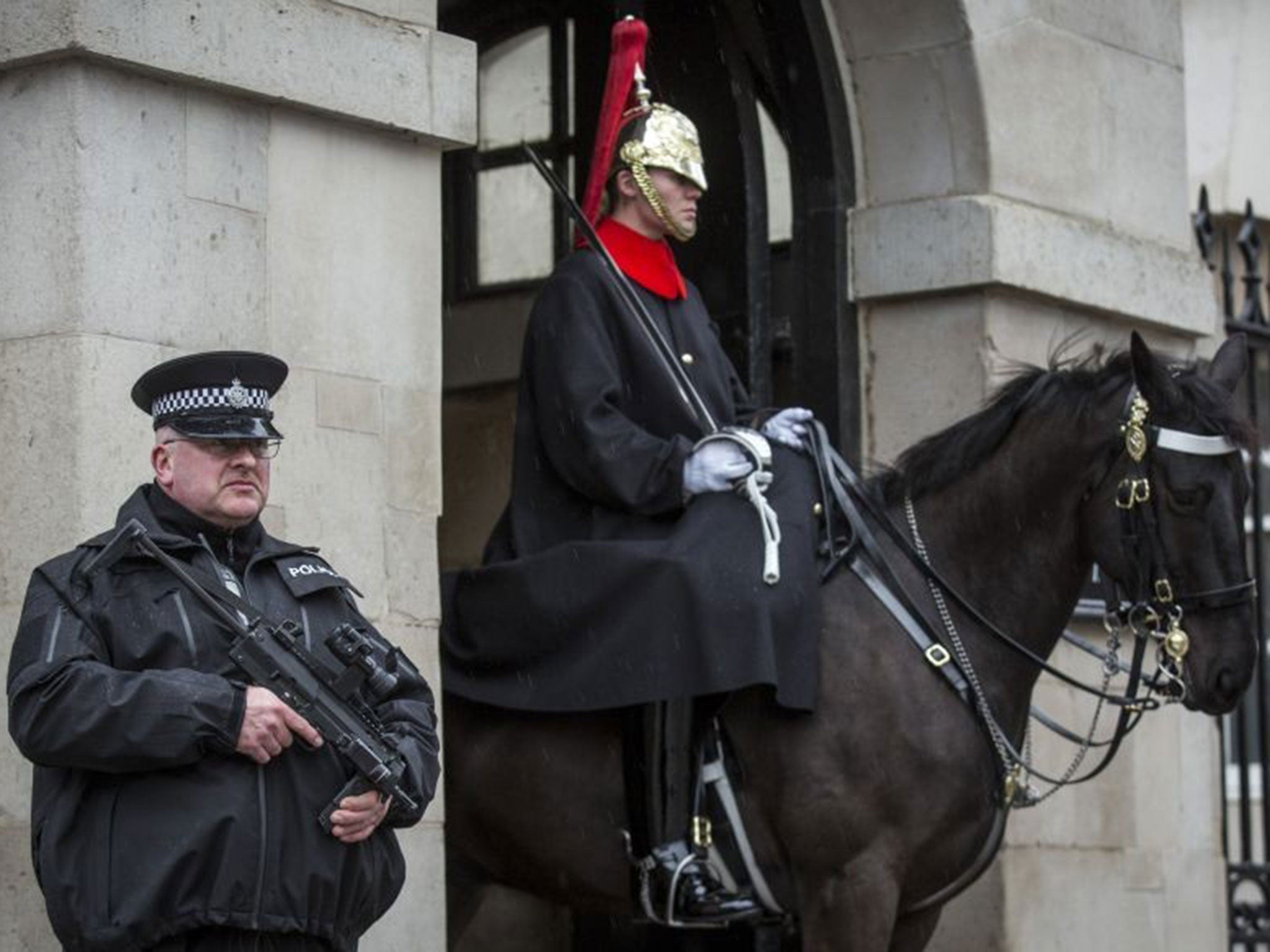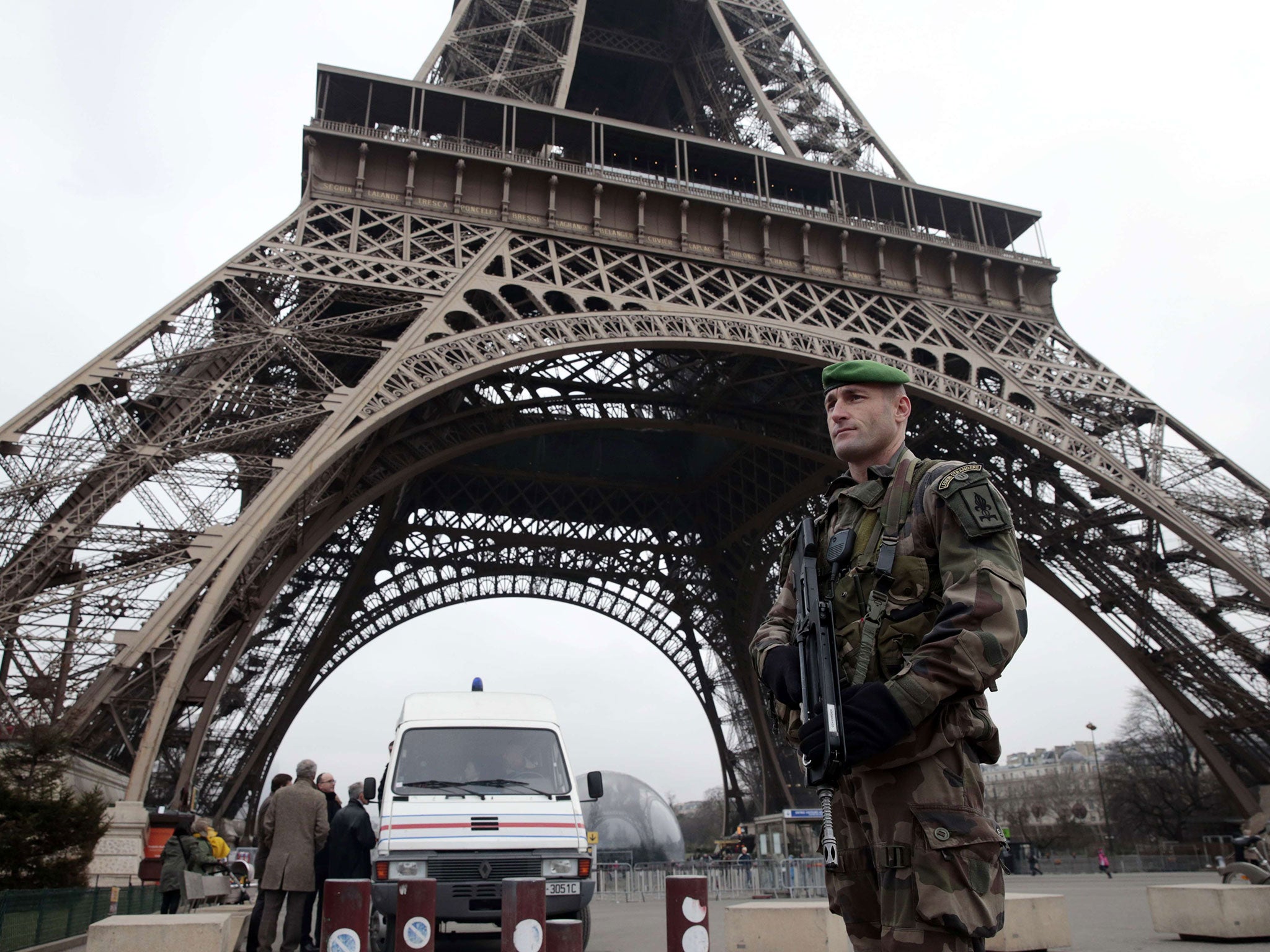Security services 'on high alert for beheading attack' in Britain in wake of Paris killings
There has reportedly been terrorist 'chatter' over plans to murder soldiers and police

Your support helps us to tell the story
From reproductive rights to climate change to Big Tech, The Independent is on the ground when the story is developing. Whether it's investigating the financials of Elon Musk's pro-Trump PAC or producing our latest documentary, 'The A Word', which shines a light on the American women fighting for reproductive rights, we know how important it is to parse out the facts from the messaging.
At such a critical moment in US history, we need reporters on the ground. Your donation allows us to keep sending journalists to speak to both sides of the story.
The Independent is trusted by Americans across the entire political spectrum. And unlike many other quality news outlets, we choose not to lock Americans out of our reporting and analysis with paywalls. We believe quality journalism should be available to everyone, paid for by those who can afford it.
Your support makes all the difference.Security services are reportedly on “high alert” for a beheading attack in Britain after online “chatter” by jihadists discussing plans to murder soldiers, police and intelligence operatives.
It is feared that extremists want to copy Isis’ killing of James Foley, David Haines, Alan Henning and other hostages last year by abducting a target and posting footage of their death on the internet, The Times reported.
A tweet from an account claiming to be from a man fighting with Isis in Syria on New Year’s Eve read: “Allahu akbar! Islamic State has killed a British soldier in Britain in his own home.”
Although no such murder was found to have taken place, sources told the newspaper it prompted a major alert and extensive investigation.
The emergence of Isis in Syria and Iraq was one of the factors causing the UK’s terrorist threat level to be raised to “severe” in August, meaning that an attack is deemed “highly likely” but not imminent.
It has remained at that level, one below the highest alert, but the possibility of a Paris-style attack like the massacre at Charlie Hebdo and following hostage crises is being examined.

Police officers and soldiers have been advised to remain vigilant. French soldiers have been warned not to wear their uniforms when travelling outside barracks and bases but the advice in the UK is discretionary, The Times reported.
As well as an increased police presence outside major military and tourist sites, the Metropolitan Police’s helicopters have been carrying out “proactive security patrols over various locations” in the capital since the Charlie Hebdo attack on Wednesday.
Isis, which is believed to have hundreds of British-born fighters in its ranks, called for terror attacks in followers’ home countries last year.
In September, the group’s spokesman Abu Mohammed al-Adnani told followers to kill “a disbelieving American or European – especially the spiteful and filthy French – or an Australian, or a Canadian, or any other disbeliever from the disbelievers waging war, including the citizens of the countries that entered into a coalition against the Islamic State”.
His address continued: “Smash his head with a rock, or slaughter him with a knife, or run him over with your car, or throw him down from a high place, or choke him, or poison him.”
Amedy Coulibaly, who killed four hostages at a kosher supermarket in Paris, had pledged allegiance to Isis, while Charlie Hebdo gunmen Said and Cherif Kouachi claimed to represent al-Qaeda in Yemen.
A spokesperson for Downing Street said agencies “regularly” carry out drills to test their response to a terror attack, “including scenarios similar to the incidents in Paris”.
“They also discussed the risk posed by firearms, agreeing that our existing tough firearms laws are a very important part of the protections we have and that we should step up our efforts with other countries to crack down on the illegal smuggling of weapons across borders,” he added.
Because of Britain’s strict gun laws, security agencies look to knife attacks like the murder of Lee Rigby in Woolwich as the most likely method of slaughter.
David Cameron and Theresa May have also used the Paris attacks to argue for increased powers of surveillance by reviving the abandoned draft communications data bill, previously labelled a “snoopers’ charter”.
“The attacks in Paris demonstrated the scale of the threat that we face and the need to have robust powers through our intelligence and security agencies in order to keep our people safe,” Mr Cameron said.
Join our commenting forum
Join thought-provoking conversations, follow other Independent readers and see their replies
Comments